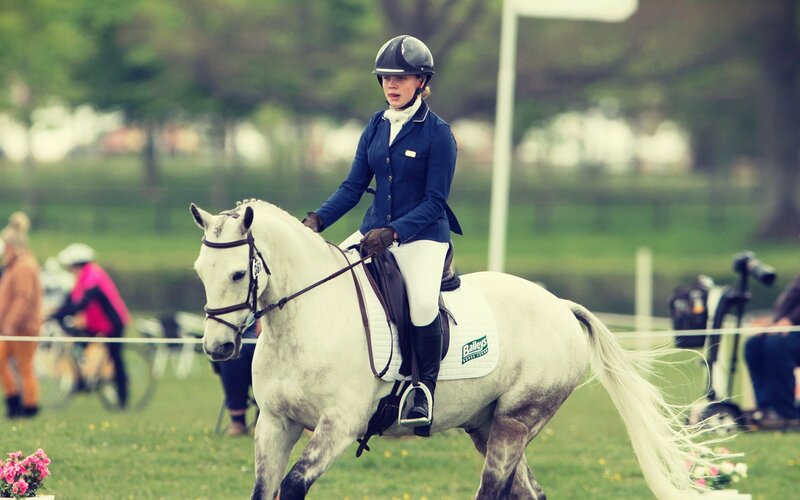
How to improve your mental performance
Sally McGinn from Mind Odyssey shares her top tips for improving your mental performance this season.
Sally has been working in sports psychology for more than 10 years and set up her private practice, Mind Odyssey, last year. She works with a variety of sportspeople, including individuals and teams. Sally grew up riding horses and evented up to Intermediate level. Once she stopped eventing, she continued to be involved in the sport as an owner, with her horse making it to the Mitsubishi Motors Badminton Horse Trials, finishing in the top 20. Here she shares her tips for improving your mental performance this season.
Sally has been working in sports psychology for more than 10 years and set up her private practice, Mind Odyssey, last year. She works with a variety of sportspeople, including individuals and teams. Sally grew up riding horses and evented up to Intermediate level. Once she stopped eventing, she continued to be involved in the sport as an owner, with her horse making it to the Mitsubishi Motors Badminton Horse Trials, finishing in the top 20. Here she shares her tips for improving your mental performance this season.
Goal Setting
- Set goals to provide focus and direction on activities – they help you to build confidence by giving you something to look back on and see what you have achieved.
- Make your goals SMART; that is Specific – saying “I want to do well next season,” is not enough of a motivator. Make sure you are more specific. Measurable – how will you know you’ve achieved that goal? Action Orientated – they have to make you take action and provide a challenge, but at the same time need to be Realistic otherwise you could lose motivation. Finally, they should be Timely – set short, mid and long-term goals so you can see your progression.
Watch more on goals and goal setting HERE.
Routine
- Think about your routine on competition day that gives you a structure that you can fall back on no matter what happens.
- Plan your day so you aren’t competing under time pressure as well as performance pressure: schedule in time for everything – breakfast, travelling, walking the course, going to the loo, studding up, warming up etc.
- Don’t worry about what other riders are doing – your routine is specific to you!
Watch more on setting routines HERE.
Self-belief
- Be your own best friend – if your best friend came to you with low self-belief about their performance, what would you say to them?
- Go for your dreams and be excited about your performance. You’ve worked and trained hard for this so go and enjoy it.
- Be realistic – giving yourself realistic goals gives you confidence.
- Focus on the successes, look back at when it has gone right and look to repeat those.
Find out more about self-belief HERE.
Staying in the moment
- Focus and concentrate on the activity you are doing and not what has happened previously or what is coming up ahead.
- Experience counts for a lot. The more you can get out to practice different situations, the better you will become at handling them.
More tips on how to stay in the moment HERE.
Control the controllables
- Focus on the things you can control – you can’t control the weather, the ground or what the dressage judges will think of you, but you can control how you ride, how you think and how you feel.
- Let it go! When something hasn’t gone to plan, let it go, don’t focus on the negatives at that moment in time.
Managing arousal levels
- You have to work out what is optimal arousal for you – do you need to get ‘psyched up’ or do you need help calming down?
- When you become nervous your breathing can become erratic, therefore introducing techniques that focus on breathing and slowing your breathing down can help you relax.
- Music can help ‘psych you up’ or calm you down, depending on your personal preferences. Singing a song in your head can also help you relax your breathing.
- Mental rehearsal helps you to visualise your performance – but it must be positive e.g. if you’re riding your dressage test it is the best test you can do, your halts are square, the test is accurate etc.
- Self-talk can be instructional or motivational; instructional self talk is telling yourself to do certain things, for example “sit up” or “look for your line” and motivational self-talk is giving yourself some confidence and belief, for example “you can do this”.
Find out more about how to manage your arousal levels HERE.
